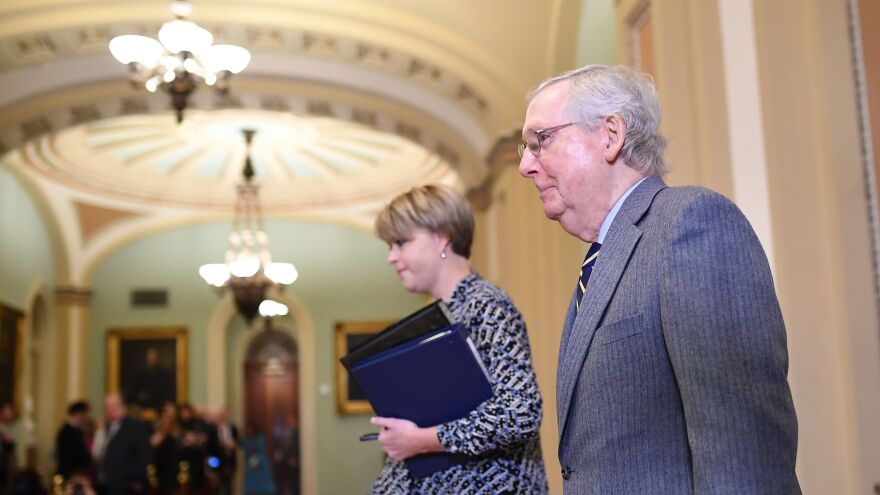Updated at 4:30 p.m. ET
As jurors in President Trump's impeachment trial, senators have remained silent as House impeachment managers and Trump's defense team make their cases. But now they have their opening.
The trial adjourned on Monday, giving senators their chance to take the floor. That window was still open on Tuesday; senators had up to 10 minutes each to speak.
Senate Majority Leader Mitch McConnell, R-Ky., spoke first on Tuesday, dismissing the two articles of impeachment against Trump as "constitutionally incoherent."

Maine Sen. Susan Collins, one of two Republicans who voted with Democrats to push for witnesses in the Senate impeachment trial, announced she will vote to acquit President Trump on both articles of impeachment.
Collins said that while there were gaps in the record, "some key facts are not disputed" about the president's phone call with the Ukrainian president. Speaking about Article 1, which alleges abuse of power, Collins said it was wrong for the president to mention former Vice President Joe Biden on the call and "wrong of him to ask a foreign government to investigate a political rival." But she said that the House managers did not meet the burden of showing the president's conduct was worth removal from office.
The Maine Republican criticized the House managers' case on Article 2, obstruction of Congress, saying they chose "speed over finality" in their decision not to go to court to subpoena key Trump administration witnesses for testimony and documents.
Utah Republican Sen. Mitt Romney has not announced how he will vote, but he has been publicly critical of the president's conduct. He could be the lone GOP senator voting to convict the president when the Senate votes Wednesday afternoon on both articles. There is also a small group of red state Democrats who have not announced their votes, and it is possible there could be a bipartisan acquittal of the president on one or both articles of impeachment.
Trump was impeached by the House of Representatives in December on charges of abuse of power and obstruction of Congress related to efforts to get Ukraine to investigate Trump's political rivals.
At 4 p.m. Wednesday, the Senate is set to vote on whether Trump should be convicted or acquitted of those charges. McConnell made his case for why senators should vote to acquit.
"We must vote to reject the House abuse of power, vote to protect our institutions, vote to reject to new precedents that would reduce the framers' design to rubble, vote to keep factional fever from boiling over and scorching our republic," he said on the Senate floor. "I urge every one of our colleagues to cast the vote the facts, the evidence, the Constitution and the common good clearly require. Vote to acquit the president of these charges."
Copyright 2020 NPR. To see more, visit https://www.npr.org.


